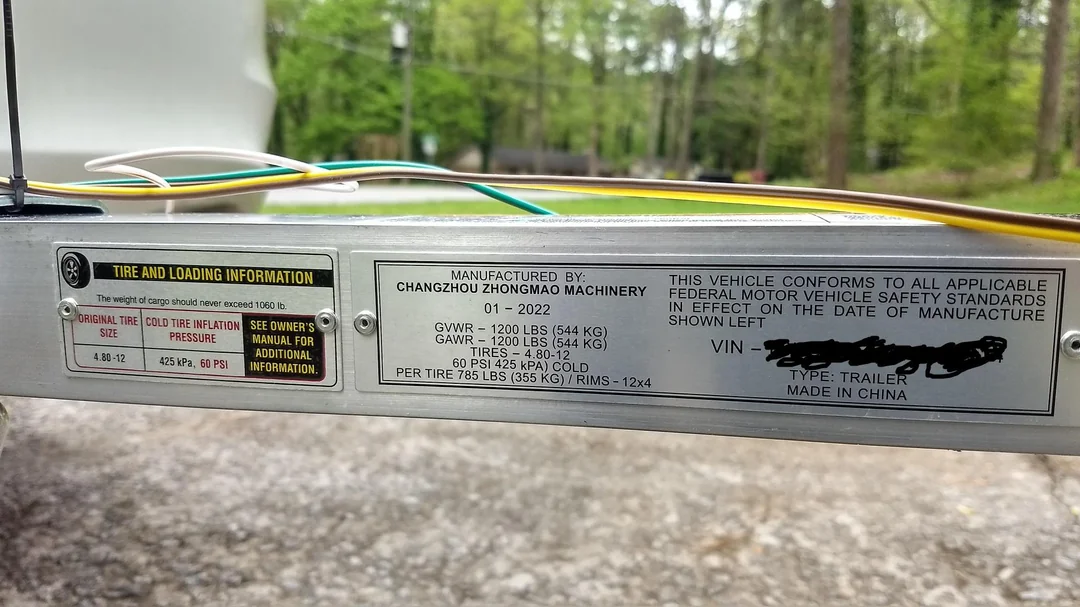If you’ve just bought a trailer or you’re planning to get one in Texas, you might be wondering about the whole process of registering it. It can seem a bit confusing at first, but don’t worry! This guide will walk you through everything you need to know about registering a trailer in Texas in a simple and easy-to-understand way.
What Is Trailer Registration?
Before we dive into the specifics, let’s start with the basics. Trailer registration is a legal requirement in Texas (and in most other states). It means you need to officially record your trailer with the state so that you can legally use it on public roads. This process makes sure that your trailer is safe and meets all the necessary regulations.
Why Register Your Trailer?
You might ask, “Why do I need to go through all this trouble?” Well, registering your trailer is important for several reasons:
- Legal Compliance: It ensures that you’re following the law. Driving a trailer that isn’t registered can lead to fines or other legal problems.
- Identification: Registration helps law enforcement identify your trailer if it’s lost or stolen.
- Safety: The registration process often includes inspections to make sure your trailer is roadworthy.
Who Needs to Register a Trailer?
In Texas, almost everyone who owns a trailer needs to register it. This includes people who:
- Use their trailer for personal purposes, like towing a boat or camper.
- Use their trailer for business, such as delivering goods or hauling equipment.
- Have trailers that are used off-road, but might occasionally be on public roads.
What Types of Trailers Need to Be Registered?
Texas requires the registration of several types of trailers. These include:
- Utility Trailers: Used for carrying tools, equipment, or other goods.
- Travel Trailers: Designed for camping or traveling.
- Boat Trailers: Specifically used to transport boats.
- Cargo Trailers: For hauling goods or materials.
- Horse Trailers: Used to transport horses.
If your trailer fits into one of these categories, it needs to be registered.
Steps to Register Your Trailer in Texas
1. Gather Your Documents
Before you head to the registration office, you need to make sure you have all the necessary documents. Here’s what you’ll typically need:
- Proof of Ownership: This could be a title or a bill of sale. If you bought the trailer used, you might also need a notarized title.
- Identification: A Texas driver’s license or ID card.
- Proof of Insurance: Most trailers need to have insurance, even if it’s just liability insurance.
- Proof of Vehicle Inspection: Some trailers need to pass an inspection before they can be registered. This ensures they’re in good working order.
2. Get Your Trailer Inspected
In Texas, some trailers need to be inspected before they can be registered. This is especially true for trailers that are over a certain weight or are used for business purposes. You’ll need to take your trailer to a licensed inspection station. They’ll check things like:
- Brakes
- Lights
- Tires
- Overall Safety
The inspection station will give you a certificate or report that you need to take to the registration office.
Also, for more exciting Texas Rangers content, be sure to check out: It’s Texas Time!
3. Visit the Texas Department of Motor Vehicles (DMV)
Once you have all your documents and your trailer is inspected (if necessary), it’s time to visit your local DMV office. Here’s what you need to do:
- Fill Out a Registration Application: This form asks for information about you and your trailer.
- Pay the Registration Fee: The cost of registering a trailer can vary based on its type and weight. Be prepared to pay this fee at the DMV office.
- Submit Your Documents: Hand over all the paperwork you’ve gathered. The DMV staff will review everything and process your registration.
4. Get Your License Plate and Registration Sticker
After your registration is processed, you’ll receive a license plate for your trailer and a registration sticker. The license plate should be attached to the back of your trailer, and the sticker should be placed on the plate or in the designated area. Also, for more exciting Texas Rangers content, be sure to check out: It’s Texas Time!
5. Renew Your Registration Annually
Trailer registration in Texas isn’t a one-time deal. You’ll need to renew it each year. The renewal process is similar to the initial registration:
- Check Your Renewal Notice: You’ll receive a notice in the mail before your registration expires.
- Update Any Information: If you’ve moved or your trailer has changed, update your information.
- Pay the Renewal Fee: Like the initial registration, you’ll need to pay a fee to renew your registration.
- Get a New Sticker: You’ll receive a new sticker to place on your license plate.
Special Considerations for Unique Trailers
Some trailers have specific registration requirements. For example:
- Homemade Trailers: If you built your trailer yourself, you might need to provide extra documentation to prove that it meets safety standards.
- Specialty Trailers: Trailers designed for unique purposes, like circus or carnival trailers, may have additional requirements.
What Happens If You Don’t Register Your Trailer?
If you don’t register your trailer, you could face a range of problems:
- Fines and Penalties: Driving an unregistered trailer can result in fines.
- Legal Issues: Your trailer could be impounded if it’s not properly registered.
- Insurance Problems: Unregistered trailers might not be covered by insurance in case of an accident.
Frequently Asked Questions
How long does it take to register a trailer in Texas?
The process usually takes less than an hour if you have all your documents in order and there are no issues with your trailer.
Can I register my trailer online?
In most cases, you need to visit the DMV in person to register your trailer. However, you can check the Texas DMV website to see if any parts of the process can be done online.
What if I bought a trailer from out of state?
If you purchased a trailer from another state, you’ll need to provide additional paperwork, such as a title from the previous owner and possibly a VIN verification.
Do I need to have my trailer weighed?
In Texas, trailers that are over a certain weight may need to be weighed at a scale. This ensures that the trailer’s weight is accurately recorded for registration purposes.
Conclusion
Registering a trailer in Texas might seem like a lot of work, but it’s a straightforward process once you understand the steps involved. By following this guide, you can ensure that your trailer is legally registered and ready for use. Remember to gather all your documents, get your trailer inspected if needed, and visit your local DMV office to complete the registration. Happy towing!





